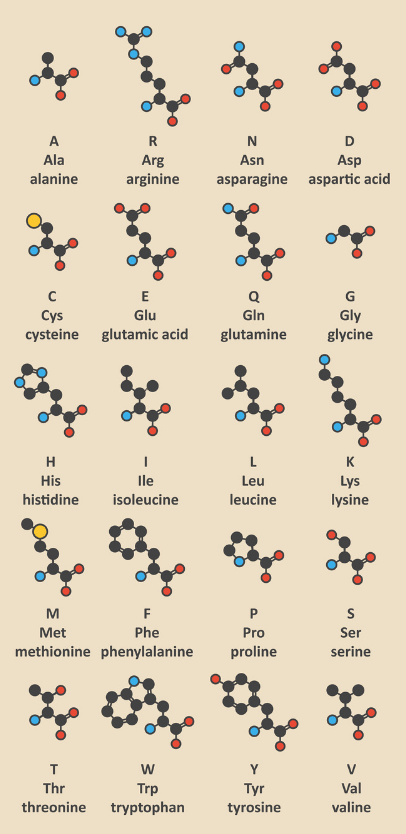EAA vs. BCAA: What’s the Difference?

If you’ve spent any time shopping for supplements recently, you’ve probably encountered the acronyms EAA (essential amino acids) and BCAA (branched-chain amino acids). While they share some similarities, they also have distinct differences that make each suitable for specific fitness goals and dietary needs. This article delves into the comparison between EAAs and BCAAs, exploring their definitions, benefits, sources, supplementation strategies, and which might be the better choice for your individual needs.
What Are EAAs and BCAAs?

Essential Amino Acids (EAAs)
EAAs are amino acids that the human body cannot synthesize on its own and must be obtained through diet. There are nine essential amino acids:
- Histidine
- Isoleucine
- Leucine
- Lysine
- Methionine
- Phenylalanine
- Threonine
- Tryptophan
- Valine
These amino acids are crucial for various bodily functions, including protein synthesis, tissue repair, and nutrient absorption.
Branched-Chain Amino Acids (BCAAs)
BCAAs are a subset of EAAs and consist of three essential amino acids:
- Leucine
- Isoleucine
- Valine
BCAAs are named for their branched molecular structure and are particularly important for muscle metabolism and energy production during exercise.
Key Differences Between EAAs and BCAAs
While all BCAAs are EAAs, not all EAAs are BCAAs. The primary differences lie in their composition and specific roles within the body:
- Composition: EAAs include all nine essential amino acids, whereas BCAAs focus solely on leucine, isoleucine, and valine.
- Function: BCAAs are specifically involved in muscle protein synthesis and energy production, making them particularly beneficial for athletes and those engaged in resistance training. EAAs, on the other hand, support a broader range of bodily functions beyond muscle growth, including immune function and hormone production.
- Supplementation Benefits: BCAA supplements are often marketed towards enhancing workout performance and reducing muscle soreness, while EAA supplements provide comprehensive support for overall health and muscle maintenance.
Benefits of EAAs
1. Comprehensive Muscle Protein Synthesis
EAAs are essential for the synthesis of new proteins in the body. All nine EAAs are required to build complete proteins, making them crucial for muscle growth and repair.
2. Enhanced Recovery and Reduced Muscle Soreness
Consuming EAAs post-workout can accelerate recovery by providing the necessary building blocks for muscle repair, reducing delayed onset muscle soreness (DOMS).
3. Support for Immune Function
EAAs play a role in maintaining a healthy immune system. Adequate protein intake is essential for the production of antibodies and immune cells.
4. Improved Mental Health and Cognitive Function
Some EAAs, such as tryptophan, are precursors to neurotransmitters like serotonin, which can influence mood and cognitive function.
5. Enhanced Nutrient Absorption
EAAs aid in the absorption of other nutrients, ensuring that your body efficiently utilizes the vitamins and minerals consumed in your diet.
Benefits of BCAAs
1. Stimulate Muscle Protein Synthesis
Leucine, one of the BCAAs, is particularly effective in triggering the muscle-building process, making BCAAs a favorite among bodybuilders and athletes.
2. Reduce Muscle Breakdown
BCAAs help prevent muscle protein breakdown during intense exercise, preserving muscle mass and strength.
3. Decrease Muscle Soreness and Fatigue
Supplementing with BCAAs can reduce the perception of muscle soreness and fatigue, allowing for quicker recovery and more frequent training sessions.
4. Provide Energy During Workouts
BCAAs can be used as an energy source during prolonged exercise, helping to sustain performance and endurance.
5. Support Weight Management
BCAAs may aid in weight loss by promoting muscle retention and boosting metabolism, especially when combined with resistance training.
Dietary Sources of EAAs and BCAAs
Animal-Based Proteins
- Meat and Poultry: Beef, chicken, turkey.
- Fish and Seafood: Salmon, tuna, shrimp.
- Dairy Products: Milk, cheese, yogurt.
- Eggs: Whole eggs are a complete protein source.
Plant-Based Proteins
- Legumes: Lentils, chickpeas, black beans.
- Nuts and Seeds: Almonds, peanuts, chia seeds, flaxseeds.
- Whole Grains: Quinoa, brown rice, oats.
- Soy Products: Tofu, tempeh, edamame.
Supplements
- EAA Supplements: Typically contain all nine essential amino acids in varying ratios.
- BCAA Supplements: Focus on leucine, isoleucine, and valine, often in a 2:1:1 ratio.
Supplementation: When and Why to Choose EAAs or BCAAs

When to Choose EAAs
- Comprehensive Nutrition: If you’re looking for a complete amino acid profile to support overall health, immune function, and muscle maintenance.
- Dietary Restrictions: Suitable for those on plant-based diets who need to ensure they’re getting all essential amino acids.
- Recovery Support: Ideal for post-workout recovery to enhance muscle repair and reduce soreness.
When to Choose BCAAs
- Muscle Building: If your primary goal is to stimulate muscle protein synthesis and support muscle growth.
- Pre-Workout Energy: Useful before or during workouts to provide an additional energy source and reduce fatigue.
- Preventing Muscle Breakdown: Beneficial during intense training periods to preserve muscle mass.
Potential Side Effects and Considerations
EAAs
- Digestive Issues: Some individuals may experience stomach upset, bloating, or diarrhea when taking EAA supplements.
- Allergic Reactions: Rare but possible, especially if the supplement contains additional ingredients or allergens.
- Cost: EAA supplements tend to be more expensive than BCAAs due to their comprehensive amino acid profile.
BCAAs
- Imbalance of Amino Acids: Excessive intake of BCAAs without other essential amino acids can potentially lead to an imbalance.
- Digestive Discomfort: Similar to EAAs, some users may experience gastrointestinal issues.
- Limited Scope: BCAAs alone may not support all aspects of muscle recovery and overall health as effectively as EAAs.
Which One Should You Choose?
The decision between EAAs and BCAAs depends on your specific fitness goals, dietary preferences, and overall health needs:
- For Comprehensive Health and Muscle Maintenance: EAAs are the better choice as they provide all essential amino acids necessary for various bodily functions.
- For Targeted Muscle Growth and Workout Support: BCAAs are beneficial for those focusing primarily on muscle building and reducing workout fatigue.
- For Plant-Based Diets: EAAs are more suitable as they ensure the intake of all essential amino acids, which may be lacking in a strictly plant-based diet.
- Budget Considerations: BCAAs are generally more affordable and may be sufficient for individuals with balanced protein intake from their diet.
Always consult with a healthcare or nutrition professional before starting any new supplement to ensure it aligns with your individual health needs and goals.
Building a Stronger You
Supplement Institute is the fruit of extensive online publishing experience, spanning the breadth of SEO strategies to the nuances of paid advertisements. Our journey, marked by significant achievements and learning moments, inspires our core mission: to empower our readers with an abundance of information. By sharing insights and key learnings, we aim to provide you with the knowledge needed to navigate the complex world of supplements, helping you make well-informed decisions for your health and well-being. Welcome to Supplement Institute, where information is your greatest supplement.